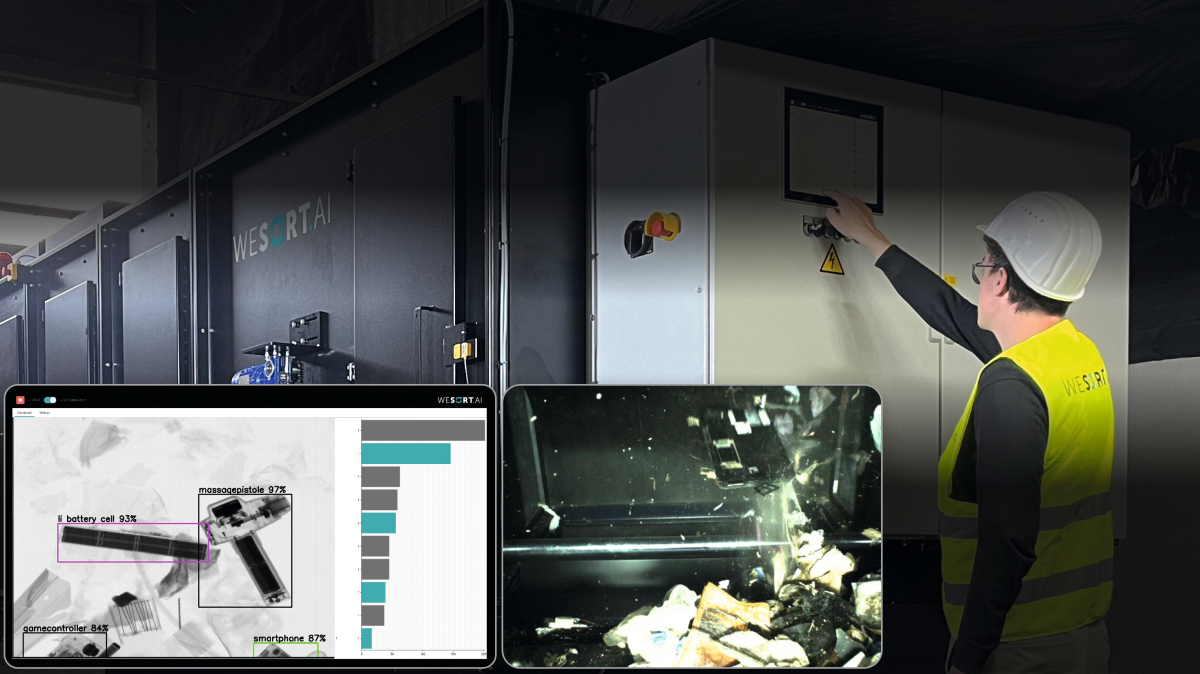New EU-funded project aims to prevent fires caused by batteries at e-waste recycling facilities
01.12.2022A project that will develop an AI-powered battery detection system utilising data from x-ray detectors and pick-and-place robots has commenced on the 1 September.

GRINNER, funded through the European Union’s Horizon Europe programme, will focus on trying to reduce the impact of one of the key issues that is currently affecting the waste electrical and electronic equipment (WEEE) management chain; that of fires caused by batteries. Such fires cost waste management facilities millions of euros every year, force facilities to close for months if not years, and act as a strong barrier to making Europe circular and carbon neutral.
The fires are caused when some battery types located inside discarded WEEE, in particular lithium-ion (Li-ion) and nickel-metal hydride (NiMH), are damaged and, as a result, ignite or explode.
The GRINNER project aims to commercialise an autonomous AI-enabled robotic sorting system capable of detecting and removing e-waste containing batteries from processing conveyor belts before they are damaged by machines that crush and consolidate waste. The system will comprise (i) an energy-resolved x-ray detectors; (ii) a software enabled module that will analyse x-ray data and effectively detect waste containing batteries that is then removed by a vision-based pick-and-place robot. The primary output of the GRINNER system will be a low-weight, super-fast, automated battery identifier that can be easily incorporated into existing WEEE and other similar recycling environments, to extract batteries and battery containing items, safely and effectively.
Led by LYNQ, a company specialising in and manufacturing execution system software, the GRINNER consortium comprises an interdisciplinary team of experts from seven research and industry organisations across the same number of European countries.
Mark Gregory, CEO of LYNQ, said, “The project will develop and bring to market the first automated robotic system capable of detecting batteries incorporated within e-waste. The proposed activities will enable the technology to be demonstrated at the Green WEEE recycling plant in Romania, which, we anticipate, will show an effective technology resulting in a reduction in direct costs for operators while minimising environmental impact.”



